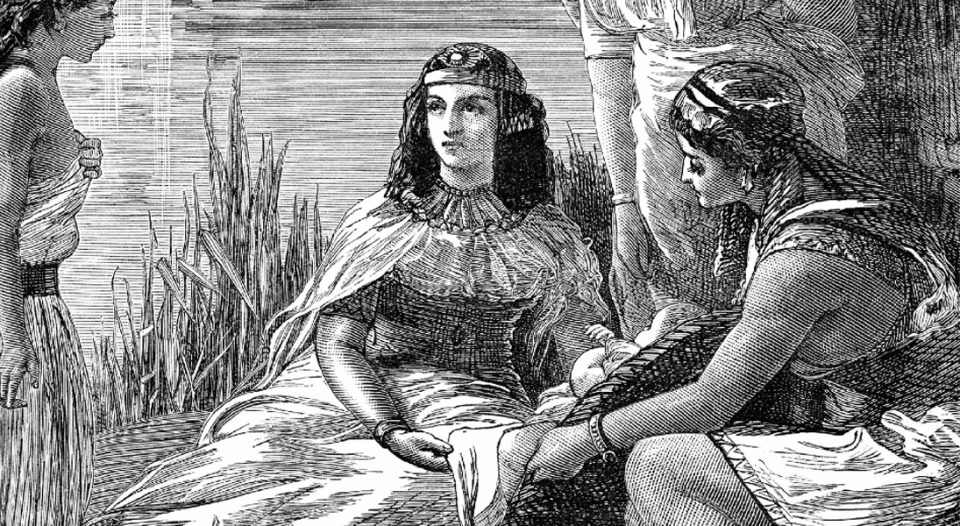Series editor’s note: During 2023, “Deeper understandings” has featured biblical scholars reflecting on one of the books of the Old Testament. This is the final entry in the series. —Kathryn A. Kleinhans, dean of Trinity Lutheran Seminary at Capital University, Columbus, Ohio, on behalf of the ELCA’s seminaries
Exodus combines all the elements to make it a favorite book of the Bible: high drama, friends in low places, holy callings, essential theology, covenantal promise and basic divine law. Throughout the book we find dabs of theological humor that tell the truth twice about us and about God.
High drama
Exodus begins with God’s people enslaved in Egypt. Why were they enslaved? Because the new pharaoh (“the man,” the power who keeps people down) was afraid of the Israelites and “did not know Joseph” (1:8)—that is, he didn’t know that one of these Israelites was key to the pharaoh’s thriving household. Are not those two reasons—fear and ignorance—still the cause of so much sin? We grow afraid of those different from us and forget that people different from us have blessed us.
Friends in low places
So how did God begin to liberate his enslaved people? Through tenacious women at the bottom of society—two enslaved midwives who defied Pharaoh’s order to murder newborn Israelites. God worked through a mother who loved her son enough to set him free in a basket in the Nile, and through Pharaoh’s daughter, who found that son and raised him. That boy was named Moses. Moses eventually had to flee Egypt because he killed an Egyptian slave master who was beating enslaved Hebrew people.
Holy callings
God was not done with Moses or the Israelites; God heard the cries of his suffering people. God called Moses to free them. Moses wasn’t too keen on returning to the land where he committed his crime. Three times he tried to turn down God’s call. But God revealed to Moses the divine name of YHWH, and Moses finally said yes. (Many of our Jewish neighbors do not pronounce God’s name because of the commandment found in Exodus 10:7: “You shall not make wrongful use of the name of the Lord your God.” Out of respect for those neighbors, only the consonants in God’s name are printed; when you see “YHWH,” say instead, “the Lord.”)
Essential theology
With the divine name YHWH in his pocket, Moses confronts Pharaoh in an epic battle of plagues to determine to whom Israel belonged. Were the Hebrews Pharaoh’s slaves? Or was Israel YHWH’s free people? Long story short, YHWH handed Pharaoh a massive defeat. Israel was YHWH’s free people.
The Book of Exodus combines all the elements to make it a favorite book of the Bible.
God says, “I am the Lord your God, who brought you out of the land of Egypt, out of the house of slavery” (Deuteronomy 5:6). The deliverance from Egypt is essential theology—it is the Easter moment of the Old Testament. It tells us forever that our God YHWH is the God of freedom, who delivers the chosen people from bondage. Praise the Lord! Every year at Passover (for God’s people, the Jews) and at Easter (for God’s people, the church), we remember through ritual meal and worship that God brought Israel out of Egypt and raised Jesus from the dead.
A little humor: Back to Egypt!
After God freed the Israelites, the first thing they did was complain. “Hey, God! Did you bring us out here only to kill us by thirst? Or by hunger? At least when we were slaves, we had food! Take us back to the fleshpots of Egypt, please! We miss the leeks and onions!” Doesn’t this humorous little story tell the truth about human nature? How quick we are to lose faith in God when we’re afraid. We do all love the fleshpots of Egypt! Every church and seminary has a “Back to Egypt Committee.” But God leads us forward with forgiveness.
Covenantal promise
Exodus tells the truth twice. We may be quick to lose faith, but God is quick to prove trustworthy. God provides water and manna and leads the people to Mount Sinai, where God forges a covenant with them: “I will take you as my people, and I will be your God” (Exodus 6:7). A divine covenant is an eternal promise. YHWH will forever be Israel’s God. Israel will forever be God’s people.
Basic divine law
After establishing the covenant, God gives Israel the gift of the Ten Commandments (20:1-21). They teach us how to love the neighbor as ourselves. Do you want to love your neighbor? Then follow these commandments: Love God and only God. Don’t worship any idols. Don’t misuse God’s name. Everyone gets a day off for rest and worship. Take care of the elderly and people with disabilities. Don’t murder. Don’t commit adultery. Don’t steal. Don’t slander your neighbor. Don’t covet your neighbor’s spouse or house.
More humor: Let’s worship a calf!
To remind us that we aren’t good at keeping God’s laws, Exodus then tells us how the people thought it would be a grand idea to worship a calf—a false image of YHWH. God grows a bit angry, but Moses reminds God that God promised to be the God of Israel (32:11-14). So God forgives. Every congregation and seminary also has a “Let’s Worship a Calf Committee.” But God leads us forward with grace and love.





